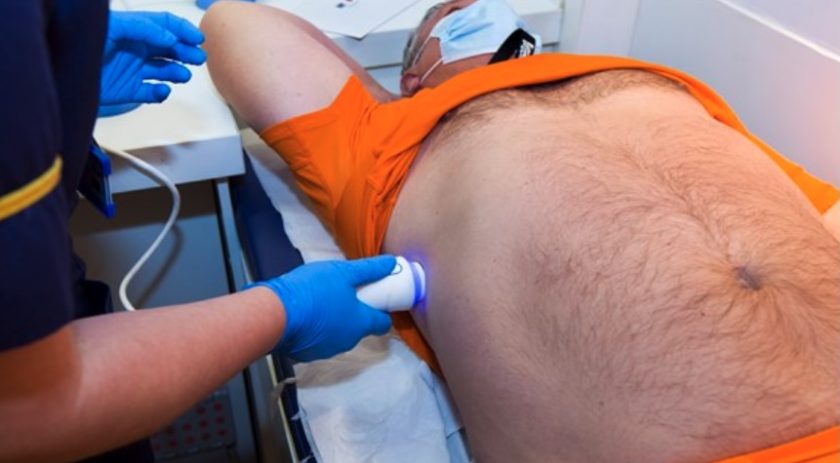Call for increased efforts to address rising number of deaths in Wales caused by liver disease

Urgent action is required to curb the alarming rise in liver disease deaths in Wales, which have surged by 23 per cent in just two years.
Politicians have called on the Welsh Government to take action to address the rising mortality rates of liver disease in Wales.
The Welsh Conservatives are calling for an increase in prevention efforts, earlier detection of liver disease in primary care, and the expansion of Alcohol Care Teams across health boards to help those in critical need of support.
In a debate on liver disease in the Senedd this week, the party also called for a long-term funding settlement to recruit, train and retain a specialist workforce that is “equitably distributed and resilient.”
Liver disease mortality rates have doubled in the last two decades and liver cancer deaths have almost doubled in just 10 years between 2010 and 2020.
Wales has the highest mortality rate due to liver disease in the UK and liver disease deaths continue to rise, with mortality rates surging by 23 per cent between 2019 and 2021.
The problem is particularly acute in Betsi Cadwaladr University Health Board, where hospital admission rates due to liver disease are 15 per cent above the national average and liver cancer mortality rates are 50 per cent higher than the national average in Wales.
Welsh Conservatives also emphasised that Wales is now the only UK nation not to have a target of achieving Hepatitis C elimination and called on the Welsh Government to respond to Hepatitus C Trust’s call for a national elimination strategy setting out a clear route-map to achieving Hepatitis C elimination by 2030 at the latest and a Hepatitis C awareness campaign.
The party called for several measures to improve prevention of the disease, including doubling of the hepatology workforce, including liver nurse specialists, to address huge variation in access to specialist care; seven day alcohol care teams in place in all Health Boards to meet local need; and adoption of the All Wales Abnormal Liver Blood Test Pathway by all GPs to improve the early detection of liver disease.
During the debate, north Wales MS Mark Isherwood said: “The number of people diagnosed with liver disease in Wales more than tripled between 2002 and 2021, rising to 53,261 people.”
“Wales has the highest mortality rate due to liver disease in the UK. Liver disease deaths in Wales continue to rise, with mortality rates surging by 23% between 2019 and 2021.”
Mr Isherwood said: “It is vital the Welsh Government publishes a timetable for the delivery of outcomes set out in its Quality Statement on Liver Disease, following the increased prevalence of liver disease amongst the Welsh population.”
“Despite 90% of liver disease being preventable, the number of people dying from the disease has doubled in the last two decades and increased by 400% in people aged 65 and under, with 9 in 10 liver cancer patients dying within 5 years of being diagnosed.”
“Welsh Ministers must seek to improve prevention of the disease.”
Mr Isherwood said: “Wales is now the only UK nation not to have a target of achieving Hepatitis C elimination in advance of the World Health Organisation’s 2030 target, with England and Northern Ireland having set an ambition of elimination by 2025 and Scotland by the even more ambitious target of 2024.”
“By contrast, recent modelling found that continuation of current treatment rates in Wales would mean elimination will not be reached until at least 2040.”
He added: “The Welsh Government should implement the recommendations made by the Health, Social Care and Sport Committee following its inquiry into Hepatitis C in Wales, including producing a national elimination strategy setting out a clear route-map to achieving hepatitis C elimination by 2030 at the latest and launching a Hepatitis C awareness campaign”.
The Welsh Government published a ‘Quality Statement for Liver Disease’ in November last year, it sets out the future vision for paediatric and adult liver services in Wales for the next decade.
“It will be supported by the NHS Executive and implemented through a series of health board enabling plans and collaborations with other networks and programmes.”
“The key areas of collaboration for hepatology services will be with diabetes and obesity services, alcohol and substance misuse services and the chronic viral hepatitis network.” The Welsh Government said.
Hepatology Clinical Lead for Wales, Dr Andrew Yeoman, said: “As we transition to the Quality Statement for Liver Disease and a new NHS Executive structure, we are keen to ensure that the progress we have made at a clinical level continues to improve.”
“The All-Wales Abnormal Liver Blood Tests Pathway, launch in 2021, is a good example of early detection work we have pioneered.”
“It is essential that this programme, to improve the early detection of liver disease by GPs, and other work does not lose momentum.”
Dr Yeoman said: “The new approach should improve the NHS’s ability to prioritise cross-cutting public health issues and more effectively manage delivery.”
“There are however concerns, within the clinical community, that the new strategic clinical networks may in practice de-prioritise liver disease services.”
“Liver disease needs to be considered separately from other gastroenterology services. We are keen to ensure that we build on recent progress.”
- Anyone who is worried about their liver health to visit the British Liver Trust website and take a simple quiz to see if they are at risk www.britishlivertrust.org.uk/screener
Spotted something? Got a story? Email: [email protected]
Latest News
